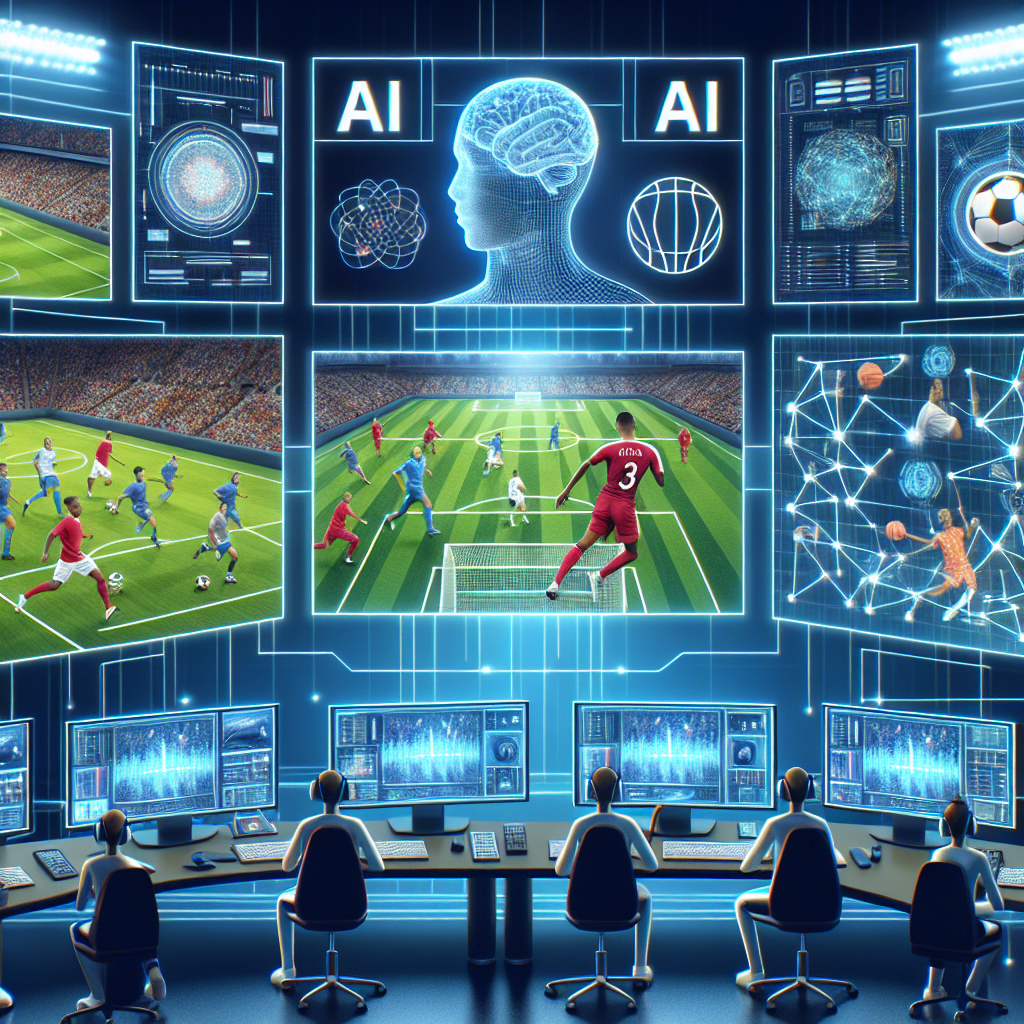Artificial Intelligence (AI) is revolutionizing many industries, and sports broadcasting is no exception. With the help of AI, sports broadcasters are able to enhance the viewing experience for fans, providing them with more personalized and engaging content. From automated camera tracking to real-time data analysis, AI is changing the way we watch sports on television.
One of the most significant ways in which AI is transforming sports broadcasting is through automated camera tracking. This technology allows broadcasters to capture every moment of the game from multiple angles, ensuring that viewers never miss a key play. AI-powered cameras can track the movement of players and the ball in real-time, providing viewers with a more immersive viewing experience. This technology is especially useful in fast-paced sports like soccer or basketball, where the action can quickly move from one end of the field to the other.
In addition to automated camera tracking, AI is also being used to analyze real-time data during sporting events. By collecting and analyzing data from sensors and cameras, AI algorithms can provide viewers with insights into player performance, game statistics, and even predictions on the outcome of the match. This real-time data analysis adds a new layer of excitement to sports broadcasting, allowing fans to engage with the game in a more meaningful way.
Furthermore, AI is also being used to personalize the viewing experience for fans. By analyzing viewer preferences and behavior, AI algorithms can recommend content that is tailored to each individual viewer. For example, AI can suggest highlight reels of a viewer’s favorite team or player, or provide real-time updates on their fantasy sports team. This personalized approach to sports broadcasting helps to keep viewers engaged and coming back for more.
Another way in which AI is enhancing the viewing experience in sports broadcasting is through virtual reality (VR) and augmented reality (AR) technologies. By using AI to create immersive virtual environments, broadcasters can transport viewers to the heart of the action, allowing them to experience the game as if they were actually on the field. This technology is especially popular among younger audiences, who are looking for more interactive and engaging ways to watch sports.
Despite the many benefits of AI in sports broadcasting, there are also some concerns about the impact of this technology on the industry. One of the main concerns is the potential loss of jobs for human camera operators and production staff. As AI-powered cameras become more advanced, there is a fear that these jobs may be replaced by automated systems. However, many experts believe that AI will actually create new opportunities for workers in the sports broadcasting industry, such as data analysts and AI programmers.
In conclusion, AI is revolutionizing sports broadcasting by enhancing the viewing experience for fans. From automated camera tracking to real-time data analysis, AI is changing the way we watch sports on television. By personalizing the viewing experience, creating immersive virtual environments, and providing real-time insights, AI is helping to engage fans in new and exciting ways. While there are some concerns about the impact of AI on jobs in the industry, many experts believe that AI will ultimately create new opportunities for workers in sports broadcasting. As technology continues to advance, we can expect even more innovations in sports broadcasting thanks to the power of artificial intelligence.
FAQs:
Q: How is AI being used in sports broadcasting?
A: AI is being used in sports broadcasting in a variety of ways, including automated camera tracking, real-time data analysis, personalized content recommendations, and virtual reality technologies.
Q: What are the benefits of AI in sports broadcasting?
A: The benefits of AI in sports broadcasting include enhanced viewing experiences, personalized content recommendations, real-time data analysis, and immersive virtual environments.
Q: Are there any concerns about the impact of AI in sports broadcasting?
A: Some concerns about the impact of AI in sports broadcasting include the potential loss of jobs for human camera operators and production staff. However, many experts believe that AI will create new opportunities for workers in the industry.
Q: What is the future of AI in sports broadcasting?
A: The future of AI in sports broadcasting is bright, with continued advancements in technology leading to even more innovative and engaging viewing experiences for fans. Expect to see more personalized content, real-time data analysis, and immersive virtual environments in the years to come.

